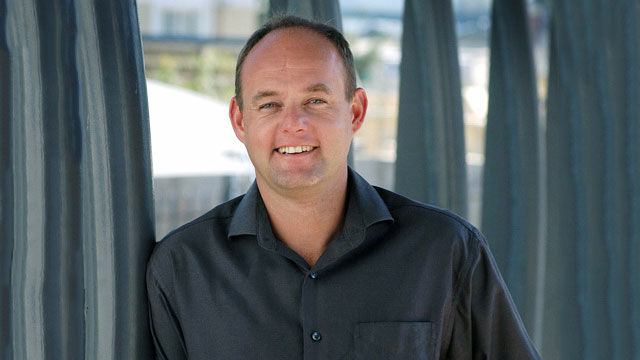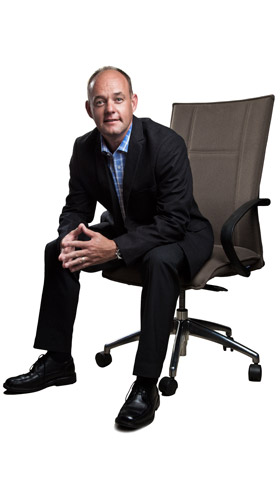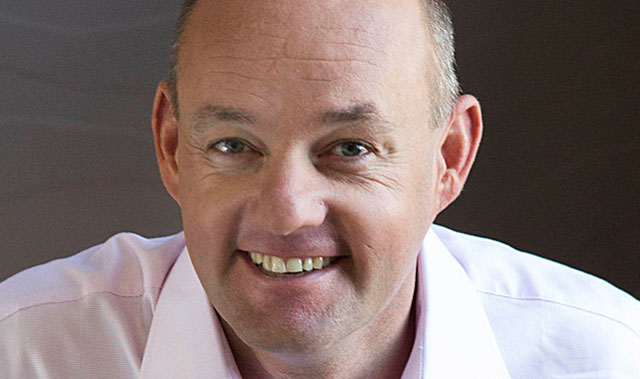
When Vox Telecom CEO Jacques du Toit, an avid pilot, walks up to his Boeing Stearman, a 1942 biplane used by the US military for training and bombing missions, or up to his more modern, twin-engine Cessna 402, the world around him “switches off”, he says.
“You are so focused on the plane and what will happen next. It’s re-energising and an escape from reality.”
The 42-year-old, whose father flew, too, and whose brother is a commercial pilot, finds flying helps him cope with the stresses of running a telecoms company in a highly competitive sector.
“It kind of suits my personality, too,” he says. “It’s a very disciplined sport, if you can call it a sport. There’s no room for error, no room for shortcuts. Guys who take shortcuts come short every time.”
He says flying the Stearman is a little like riding a Harley Davidson motorcycle. “There are no tools to help you and the avionics are limited. You can hardly see out of the cockpit. It’s just smoke and oil, an open cockpit, bugs flying in your face.”
Despite this, he says he gets a thrill out of every flight.
Born in Johannesburg, Du Toit completed his schooling at Hoërskool Brandwag, a “proper Afrikaans, East Rand school”.
The entrepreneurial bug bit while he was still at school. He started by selling compost and later biltong to friends and family.
After matriculating, he was accepted to study a BCom at the University of Pretoria. He moved to the city as a student and has never left, even though he has to commute daily to Johannesburg.
While at Tukkies, he took his business ideas further, starting a mobile bar business that provided drinks services at company functions and birthday parties. He also worked as a security guard at Infoplan (now the State IT Agency) for a while to make some spare cash.
At the time, South Africa’s cellular industry was just starting to emerge. He secured a part-time job selling cellphones as a freelance agent for a Vodac shop. “Everyone else was focusing on the Jo’burg, Cape Town and Durban CBDs. Where I found the gap was I’d take 100 phones and hit to road to Thohoyandou, Polokwane and Mussina. I spent time with the local farmers and showed them how mobile could change their lives. After a week, I would have sold all the phones.”
 After completing his tertiary studies, Du Toit landed a sales position at Aztec Communications, one of the country’s first independent cellular service providers. “It was just the right place at the right time with the right energy,” he remembers. “I quickly went from internal sales to external sales to national sales manager. The growth path was phenomenal – the speed, the growth, the money we made.”
After completing his tertiary studies, Du Toit landed a sales position at Aztec Communications, one of the country’s first independent cellular service providers. “It was just the right place at the right time with the right energy,” he remembers. “I quickly went from internal sales to external sales to national sales manager. The growth path was phenomenal – the speed, the growth, the money we made.”
In 1999, Du Toit left to join Orion Cellular, a company founded by Don Tredoux, who he describes as the “father of cellular least-cost routing” (LCR) in South Africa. LCR companies took advantage of arbitrage opportunities across the mobile operators’ various packages and offering cheaper mobile calls to companies.
Orion built a big business out of LCR, with Du Toit quickly working his way up from the position of national channel development manager to national sales manager and then sales and marketing director.
DataPro, which would later become Vox Telecom, acquired Orion Telecom for R380m in 2006. Du Toit became Orion’s CEO, but it wasn’t to be an easy ride. the company was soon hit by a “perfect storm” of new regulations governing mobile interconnection rates, the withdrawal of connection incentive bonuses by the mobile operators and a crashing economy. “No business analyst gave Orion even a 1% chance of surviving,” he says.
It did survive, but only after a painful overhaul that saw it shift its focus 180 degrees from LCR to providing voice-over-Internet protocol and converged voice and data services.
“The lesson I have learnt in this industry is that if you can’t adapt, you won’t make it. You can’t allow yourself to be rattled by change.”
When Vox Telecom founder Doug Reed and then-CEO Angus MacRobert, who had previously led Internet Solutions, decided to step down at the end of 2012, Du Toit was given the opportunity to lead the company.
Over the past three years in charge, he’s focused heavily on operational improvements, he says. This has meant removing duplication across divisions, introducing consistency in policies and processes, and creating a single vision for the company.
But being too operationally focused can end up stifling a business, he says. “The challenge now is to take leap of faith: we need to take the leap from being operationally focused to being sales focused. That’s probably been my biggest challenge: freeing up time to figure out how to go and find opportunities, to find new markets.”
In 2014, Vox’s shareholders, Rand Merchant Bank, Metier and Investec, decided to sell the company. That, Du Toit, believes was a pivotal moment in the company’s history, even though they decided in the end not to sell.

“Although it was a daunting process, and stifled the business to a degree, we learnt an enormous amount about ourselves. We learnt what the market and potential suitors like and don’t like about us and we now know where we can sharpen the edges a bit.”
When he’s not flying planes, Du Toit says he is a keen hunter. He takes his family – his wife, who he met in high school, and his two young sons — on regular hunting expeditions to his farm in Limpopo.
“It’s about being outside in the bush, sitting around the campfire. Both my boys love the veld,” he says. “Years back, you’d go with your student friends, then your business friends. That carried on until my older youngster started hunting and the focus shifted to my sons. Now a hunting weekend is about the family.”
He says being in the bush brings a different perspective. “It’s amazing how different the discussions are when you’re sitting around a campfire in the middle of the bush. It’s very special. My kids appreciate life and have an understanding about nature in a way that is completely different to kids who grow up in the city.”
He says work-life balance is crucial, and Vox requires its employees to take time out and get away. “Everything is not about going to the gym or working 18-hour days, 365 days a year.”
And when the stresses do get too much for Du Toit, there’s also the 1942 fighter plane sitting on the tarmac, just waiting to sputter its way down the runway and take him away from it all. — © 2015 NewsCentral Media




